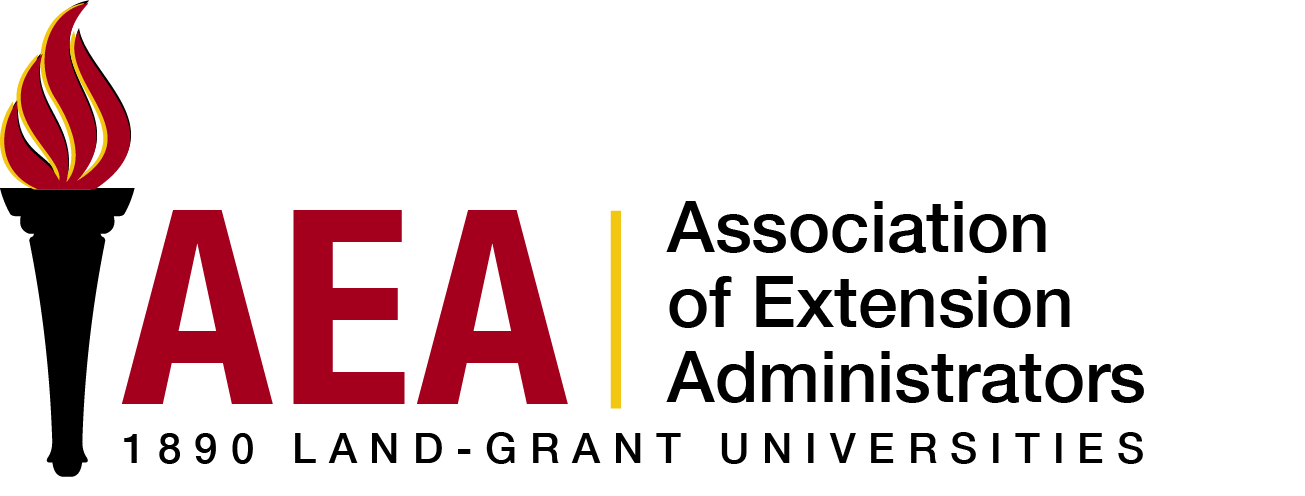Extension Today
News from and about the 1890 Land-Grant Extension SystemMessage from the Chair
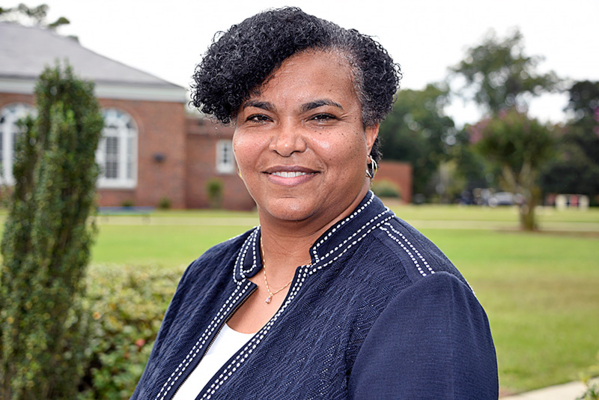
Vonda Richardson Extension Administrator, Florida A&M University
Over a year has passed since Extension has had to pivot in response to the constraints of the COVID-19 pandemic. Moving to virtual platforms and remote learning and outreach has had its challenges, but there are also opportunities.
1890 Extension faculty and staff have demonstrated the professionalism and innovation to maintain connections with the clientele and communities that we serve. This month's issue highlights the transformative and innovative ways that we have been able to continue this work. We appreciate you taking the time to read about the talented expertise in 1890 Cooperative Extension and the difference we are making.
Continue to stay safe and protect each other.

Navigating uncharted waters

By Wendi Williams, Communications & Marketing Coordinator
Pew Research reports that prior to COVID-19, only 1 in 5 Americans worked from home. During the height of the pandemic, 71 percent of Americans worked from home, including Alabama Cooperative Extension System staff. Like most Extension systems in the country, Alabama Extension at Alabama A&M University (AAMU) transitioned to digital technology, such as Zoom, Facebook, Nearpod, Panopto and Canvas, for program delivery options. This meant charting new waters by modifying program content, learning new software, and getting comfortable with various virtual platforms to expand online reach.
If there is a phrase to describe what transpired during the first nine months of the COVID-19 shutdown, it is “We did it!” Alabama Extension successfully created digital resources, such as articles, fact sheets, videos, virtual tours and interactive lessons, to address immediate client needs. Parents and students needed to learn how to adjust to working and learning from home. The public needed information about the virus and how to cope as stress levels rose and loved ones lost the battle to COVID-19.
Alabama Extension was there to provide timely resources to make this stressful time in history more manageable. Due to the efforts of dedicated staff, thousands of people were educated. More than 70 new digital products were created by the end of 2020, which allowed staff to roll into 2021 full steam ahead. For more information, visit www.aces.edu/urban.
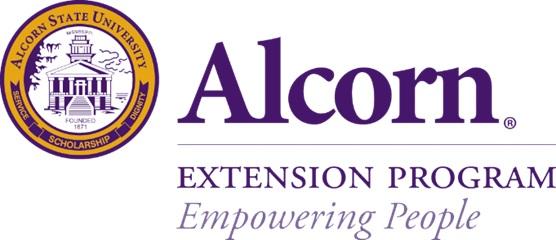
Extension program provides virtual learning opportunities amidst pandemic
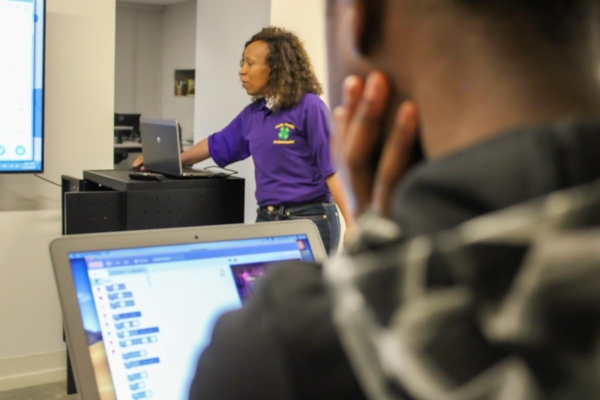
The coronavirus (COVID-19) pandemic has changed the face of life as we know it. For the Alcorn State University Extension Program (ASUEP), it indicated the end of face-to-face collaboration, forcing everyone involved to take a crash course in virtual learning environments.
For many Extension educators, the COVID-19 pandemic presented a transformative challenge. With many of the program’s clients living in rural or low-income areas, there was an absence of basic equipment, computers and internet service. In addition, many of the farmers who the ASUEP serve are not tech-savvy, which greatly reduced their ability to address and resolve technical issues.
To combat these challenges, educators were asked to:
- Create a community map to determine what resources were available.
- Partner with community organizations to provide access to computers and wireless services.
- Partner with local organizations to offer free technical assistance and training to individuals in need.
Since the inception of COVID-19, the ASUEP has implemented several measures to slow the spread and limit the number of people congregating in public places. These measures have disrupted the normal functioning of Extension systems and will likely continue until all are safely vaccinated. As the pandemic materialized, it was determined by ASUEP that a portion of their efforts should center around the following priorities:
- Professional Development Resources: It was discovered early on that Extension educators, specialists and staff members would need support.
- Curriculum Resources: These include lessons, videos, video conference calls and interactive learning modules that directly support Extension educators and clientele in acquiring new knowledge and skills.
- Tools: These include tools that can help manage teaching and learning, such as communication engines and devices.

Taking it to the (cyber) street: Extension goes virtual with its growing list of programs, services
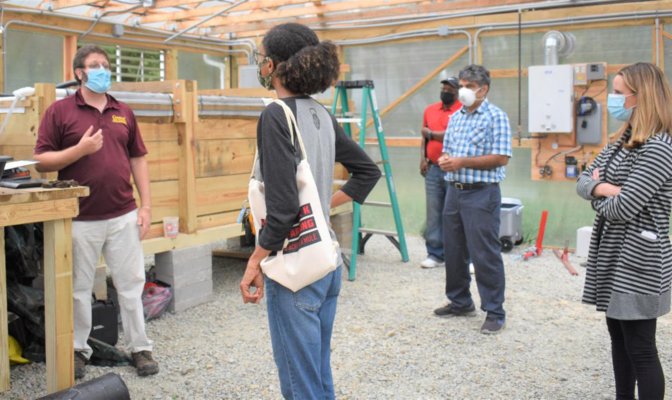
As the world closed in, Central State University Extension (CSUE) opened up its delivery platforms for programs and events with this past season of COVID-19 challenging all organizations to redesign their programs to remain impactful, strategic and relevant.
Programs in all four areas of CSUE are now featuring virtual programming to reach clients during this season of COVID-19, as well as to allow all participants to access information in a variety of accessible channels that meet their needs. In addition, two newly hired videographers film educational programs and events shared through the CSUE website, YouTube channel and social media platforms. Multiple radio programs are produced to further disseminate information.
An example of a virtual outreach platform includes the Fresh Start Record Sealing Program managed through telephone and virtual contact. Every interested participant applies online to complete the necessary entry form, which is followed up with an information go-by document that is provided by Community and Economic Development staff. A follow-up telephone call by the record sealing team is made to the participant to verify their information and criminal record data, and lastly, a virtual meeting with an assigned attorney is scheduled to get the participant processed.
Other COVID-19 responses included:
- Packaged Activities: How to Make a Face Mask Without a Sewing Machine, Engineering Your Own Social Distancing Apparatus, Engineering a Wire Art Creation, Painting Rocks of Kindness, Trees are Treemendous - Tree Cookies, Exercise Dice Challenge, and Outdoor Games & Beach Ball Activities.
- More than 1,400 fun hands-on STEM “Packaged Activities” were distributed to schools and communities in Greene, Franklin and Clark counties.

Promoting the benefits of virtual technology
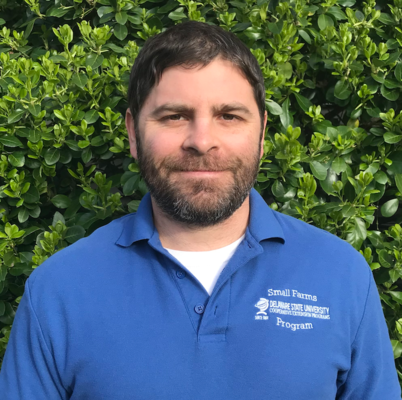
For the month of April, Delaware State University (DSU) Cooperative Extension highlights the work of Jason Challandes, Sustainable Agriculture Research and Education (SARE) educator, for his promotion of work in the virtual space.
Challandes is a DSU alum. He has been a staple in Cooperative Extension since his days as an undergraduate student, working with faculty and staff in the agriculture and natural resources mission area. This author remembers distinctly how dedicated Challandes was to his work; on one occasion, he was culling seeds from Scotch Bonnet hot peppers. If you know anything about Scotch Bonnets, you know…fire! The pungent and caustic fumes permeated the Extension garage workspace where Challandes worked quietly and diligently to complete the task, seemingly unbothered by the gagging fumes!
Flash forward to 2009, the year after Challandes earned his Bachelor of Science in environmental science and when he began work as a Northeast SARE educator stationed at his alma mater. SARE, a U.S. Department of Agriculture (USDA) program present on each land-grant campus, allows Challandes the capacity to promote the availability of grants for research and education. It also provides educational programs in the areas of profitability, farmer and community lifestyles, and environmental stewardship.

Technology enhancing access to educational opportunities for small ruminant producers
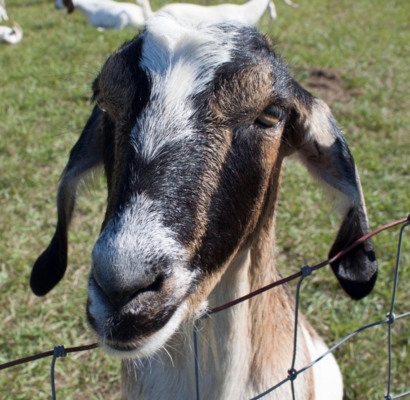
With the advent of the COVID-19 pandemic in 2020, Florida A&M University Cooperative Extension’s Small Ruminant Program began exploring various digital and web-based technology to continue assisting goat and sheep producers in a virtual setting. The technology had to be manageable for staff and user-friendly for producers. The goal was to expand on the number of training activities held, while increasing the number of small ruminant producers served.
Google Site and Zoom were the chosen delivery platforms, and educational materials for the Master Goat and Sheep Certification Program and the Small Ruminant Training Series were uploaded. The Small Ruminant Training Series was a new training program developed to enhance farmers' training opportunities. During fall 2020, the first online Master Goat and Sheep Certification Program and other workshops were successfully facilitated through the virtual platforms.
To date, analytical reports show that the site has been visited 8,179 times with most participants predominantly from Florida. However, there were farmers from Jamaica, the U.S. Virgin Islands, Alaska, Wyoming, Idaho and other states who have also accessed the site. Given the 11.5 percent increase in score from pre-test to post-test, the site is demonstrating it is beneficial for farmers, as well as the face-to-face trainings.

Serving at a distance
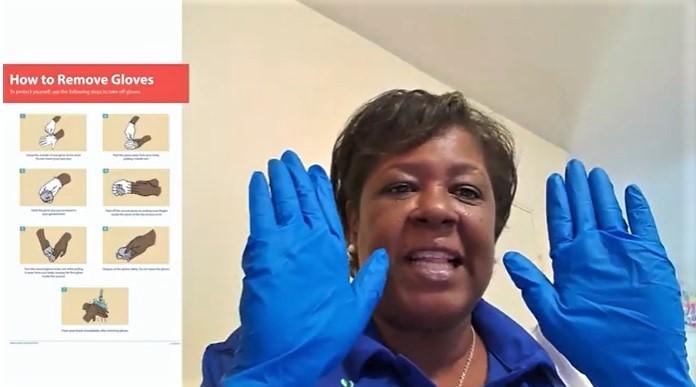
To reach communities and remain engaged during the COVID-19 pandemic, Fort Valley State University's Cooperative Extension continued to provide services to its clients within its 34-county service area. Extension staff offered traditional Cooperative Extension programmatic activities, whereas some activities were specifically related to COVID-19. These activities were delivered at a distance. Some events were collaborative efforts by county staff and specialists to give the greatest coverage across the state.
Among the programmatic activities presented by Extension staff included a COVID-19 flyer discussing proper safety and sanitation techniques during a pandemic, a COVID-19 flyer discussing dealing with stress during a pandemic, risk management trainings, resources for Extension professionals working at a distance, and an informational video on how to remove gloves properly.
Overall, since 2020, Extension staff delivered 9,457 face-to-face (Zoom, Facebook Live) activities; made 9,021 phone and 25,446 written/email connections; and provided 701 indirect services fully at a distance. For services specifically related to COVID-19, they delivered 2,220 face-to-face (Zoom, Facebook Live) activities; made 7,604 phone and 13,085 written/email connections; and provided 370 indirect services.
Furthermore, FVSU’s Cooperative Extension Program is collaborating with fellow 1890 Land-Grant Universities for a project to help stop the spread of SARS-CoV-2 (COVID-19). The grant is titled “Reducing the Impact of SARS-CoV-2 and Related Disruptions on the Local Food Supply Chain in Minority Communities in the 1890 Land-Grant Regional Network.” The U.S. Department of Agriculture’s (USDA) National Institute of Food and Agriculture (NIFA) funds this $1 million project. FVSU’s role is to produce and develop a series of instructional videos and webinars about properly processing beef cattle, goats and sheep. FVSU will also produce a video about record-keeping.
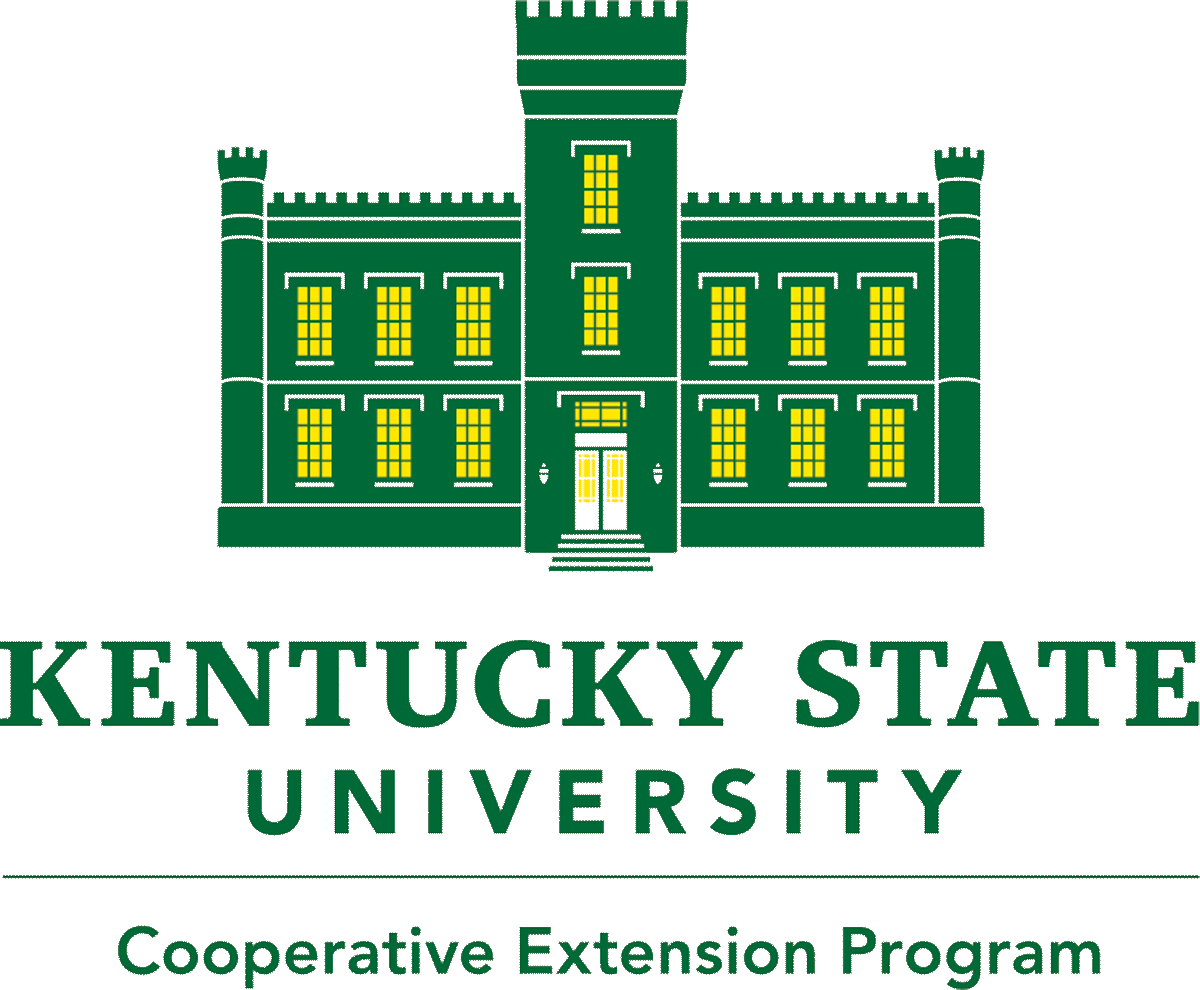
Staying connected while working remotely
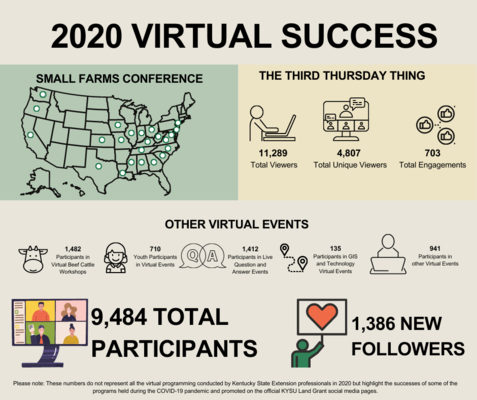
When the COVID-19 pandemic began, the world went virtual. We had to figure out how to learn, work and stay connected via online tools when we couldn’t be physically together. Kentucky State University was unable to hold its usual in-person events from Third Thursday Thing to 4-H summer camps. But the Land-Grant Program and College of Agriculture, Community and the Sciences teams did a remarkable job of adapting to virtual programming.
The Third Thursday Thing Programs were particularly successful in a virtual format. Since April 2020, the traditionally in-person monthly workshops have been held virtually via Facebook Live and/or Zoom. In 2020, the Third Thursday Thing Programs had 11,289 total viewers, 4,807 total unique viewers and 703 total engagements.
Another event that saw incredible success as a completely virtual program was the Small, Limited-Resource/Minority Farmers Conference. The completely virtual conference took place over three days and consisted of seven virtual tours and 12 sessions. In total, the conference had 329 registrants from 24 states and the District of Columbia and averaged 241 unique viewers daily.
Over the last year, Kentucky State faculty and staff have continued to serve stakeholders and foster a sense of community. With virtual events like National Pawpaw Day and the Small, Limited-Resource/Minority Farmers Conference, staff were able to reach more people than ever before.

Building partnerships and creating impact through virtual Oklahoma Local Ag Summit
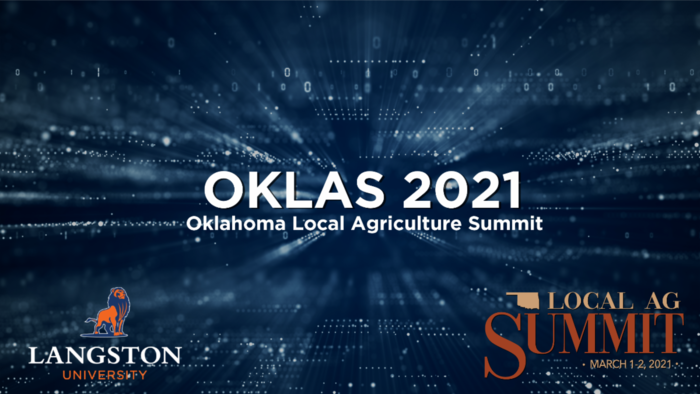
The Langston University School of Agriculture and Applied Sciences Cooperative Extension (LU-SAAS-CEOP) team partnered with the Oklahoma University Health Sciences, Oklahoma Nutrition Information Education (ONIE) Project and the Oklahoma Department of Agriculture, Food and Forestry (ODAFF) Marketing Division to host the 2021 Oklahoma Local Ag Summit.
Held virtually on March 1-2, 2021, this conference was formerly known as the Oklahoma Farmers Market Conference (OKFMAC). Langston University Cooperative Extension and Outreach Program’s (LU-CEOP) involvement in the project, along with ODAFF, the U.S. Department of Agriculture (USDA) and the Office of Partnerships and Public Engagement (OPPE) 2501 Program, provided invaluable production and marketing information to stakeholders.
LU-SAAS faculty and staff presented information relevant to and supportive of historically underserved and socially disadvantaged farmers and ranchers. LU-CEOP's participation and financial support provided recorded sessions and facilitation of satellite viewing access to the virtual summit. For community members without internet access, the satellite sites provided them the opportunity to participate in the virtual conference. The satellite sites connected stakeholders in varied locations such as Pawnee Nation College in North Central Oklahoma, Tahlequah, Wagoner, Muskogee and north Tulsa, Oklahoma.
LU-SAAS administration, faculty and staff presented virtually from the Langston University campus. Sessions included opening remarks from Dean Wesley Whittaker, an outline of LU-SAAS Small Farms Extension and Outreach programs, tips for starting and maintaining successful vegetable gardens throughout the spring and summer, making best use of heir properties, and opportunities for student scholarships and internships. Participants from across Oklahoma shared positive feedback with conference staff. Many expressed they look forward to putting the lessons they learned from the summit in practice, starting this spring and summer.
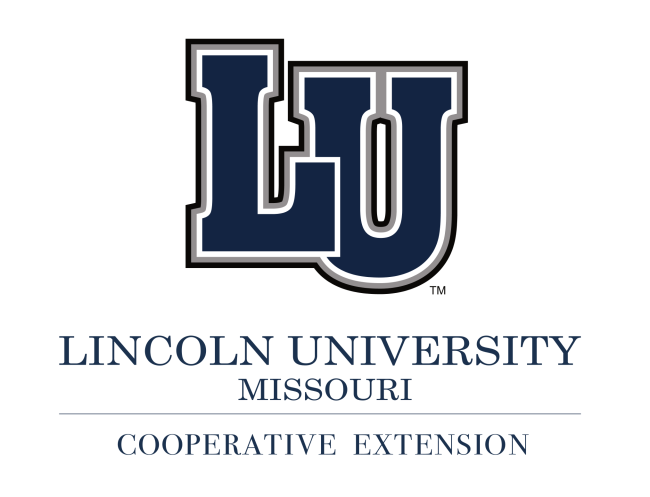
Technology enables programming during a pandemic

The Lincoln University Cooperative Extension (LUCE) has adapted to COVID-19 by moving some of its programming online. During the pandemic, the Positive Youth Development program stayed connected with its target audience by creating a YouTube channel called Fun Time with Mari and Kel.
The program was designed to keep students engaged in learning and to encourage them during the COVID-19 pandemic. The decision was made to focus on science experiments, sports, reading, do-it yourself activities, and arts and crafts, along with dancing and singing. This was something fun for the kids, as well as educational. LU Fun Time has received more than 2,000 views.
Meanwhile, the Paula J. Carter Center on Minority Health and Aging began conducting its formerly in-person Lunch and Learn program as a series of webinars. The program promotes the practice of healthy decision-making. The center uses virtual learning as a strategic tool for delivering information and services to its audience through Zoom and teleconferencing.
The St. Louis Urban Impact Center also turned to virtual learning, using Zoom to hold classes on topics such as chess, voter suppression and Zoom navigation. Participants in the courses appreciated the interaction with peers and the guidance as they navigated a new world.

Creativity and streaming technologies keep Extension audiences connected in North Carolina
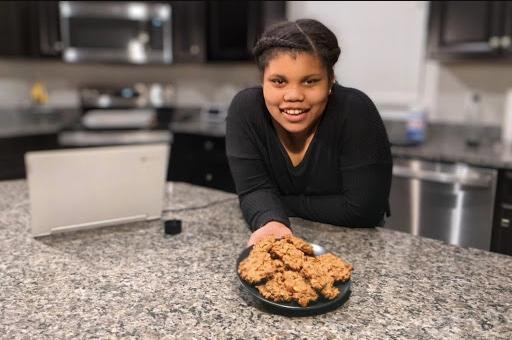
It takes more than a global pandemic to keep Extension staff at North Carolina A&T State University from providing their audiences with important information and skills to better their lives.
By combining their own creativity with streaming technologies such as the Zoom platform for teleconferencing and distance learning, Extension staff have brought people together for learning, hands-on demonstrations and plain old fun to help them stay healthy, active and engaged throughout a year of quarantines and social distancing.
A prime example is Healthy Habits, a program funded by the Walmart Foundation that uses teen mentors to promote healthy eating and physical exercise. In past years, the teen mentors and Extension staff have conducted programs on nutrition and wellness for youth and their families at community centers, churches and Extension centers. In 2020 and 2021, those programs moved to the Zoom platform.
This year, Healthy Habits, under the direction of Shewana Hairston McSwain, Expanded Food and Nutrition Education Program (EFNEP) nutrition outreach coordinator for Extension at A&T, has conducted two virtual cooking classes. The first, held in early March, featured Chef Cherisa “Cookie” Williams of Flavor 57, a catering and personal chef company in Winston-Salem. The second, held March 31, was called Making Every Bite: Baking with Dr. Dale. It featured Extension Administrator Rosalind Dale, Ed.D., making her recipe for breakfast oatmeal cookies with assistance from three teen Healthy Habits Ambassadors. More than 70 people attended the demonstration through Zoom and another 306 people viewed it through a Facebook Live stream.

4-H with Athletes for Computer Science

Black and Hispanic youth are primarily underrepresented in science, technology, engineering and mathematics (STEM) fields. According to Google (2016), there is less representation of adult minorities from these racial, ethnic groups working professionally in computer science fields. The structural and social barriers that their white counterparts do not face contributes to the gap. The lack of access and exposure to STEM subjects can significantly impact minority students' interest in pursuing a career in the area.
Former professional football player and Super Bowl champion Ellis Wyms founded Athletes for Computer Science to increase awareness and build enthusiasm for STEM careers in youth. For the last two years, Prairie View A&M University has partnered with the organization to adapt and expand the program to be entirely virtual for 4-H youth and volunteer audiences.
In fall 2019, an elementary school in Katy, Texas, was the first to pilot the program. Before the official kickoff in March 2020, adult volunteers and staff across the state were trained. Over the past year, 268 youth from five counties across Texas have participated in six coding lessons.
This program continues to achieve desired program outcomes. Of the 145 youth respondents, 88 percent agree they have learned more about careers involving coding software, robotics and other STEM careers. Forty-eight percent agree they would like a job involving coding, robotics and other STEM careers after participating in the program.
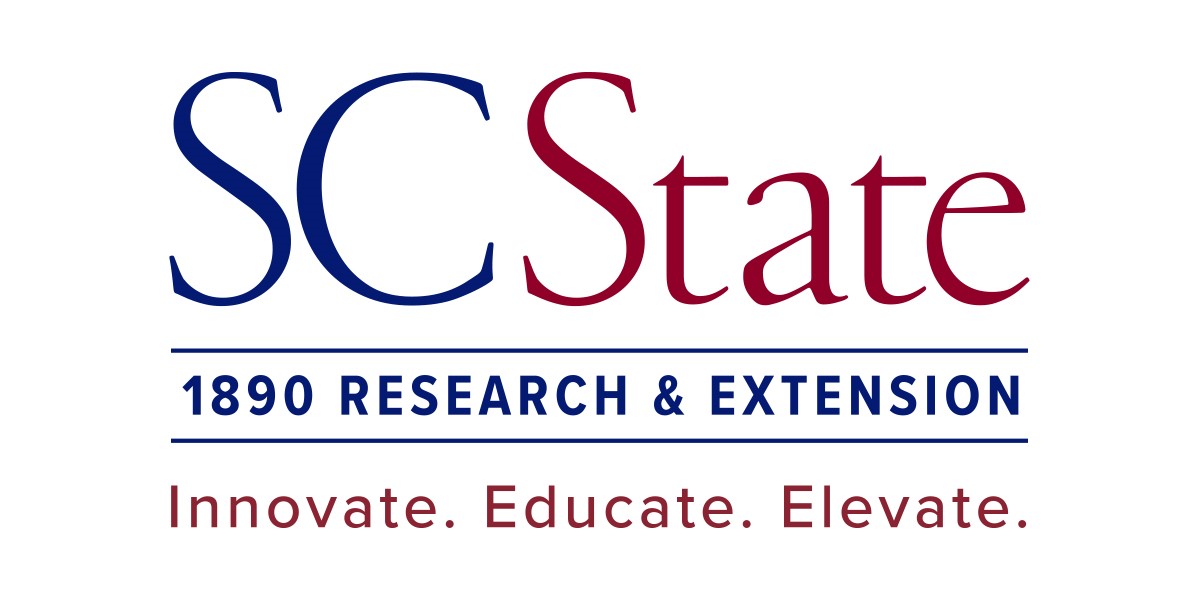
SC State 1890 grows virtual programming

One year after SC State University 1890 Research & Extension administrators made the decision to begin producing virtual programming, the online offerings have since increased and expanded the organization’s brand footprint. SC State 1890 officials began providing online learning options in wake of the COVID-19 pandemic, which to date has caused more than 8,100 confirmed deaths and contributed to more than 47,000 confirmed cases in the state of South Carolina.
The 1890 program launched its first virtual programming, @Home with SC State 1890. Topics for the series have included proper hand-washing techniques, how to safely grocery shop and quick tips on preparing healthy meals and snacks. To date, the 1890 program has produced 22 episodes within the @Home series and has garnered more than 28,400 total impressions since its launch.
@Home with SC State 1890 expanded the 1890 Program’s access to more partners. Now a monthly format, the educational video series broadcasts to residents in nine counties in the Low Country region of the state on local cable access station, PRTC Channel 57. SC State 1890 has also worked with organizations such as the American Heart Association - Midlands and the Palmetto Poison Center to produce original content.
In addition, the Elevate Leadership Podcast is gaining awareness among entrepreneurs and those aspiring to own and operate small businesses. Finally, Extension agents have used online events/meeting platforms to engage youth. Programs and activities that have traditionally been held at local schools and after-school programs have taken place virtually. Students have participated in virtual book clubs, the annual national Read Across America Celebration and the National 4-H STEM Challenge.
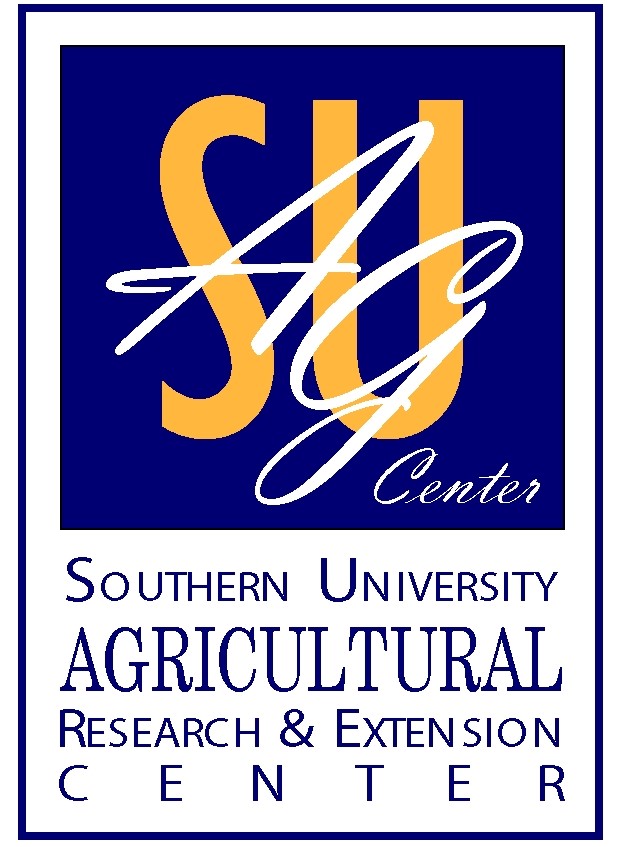
Lessons learned by the SU Ag Center through the utilization of technology during COVID-19
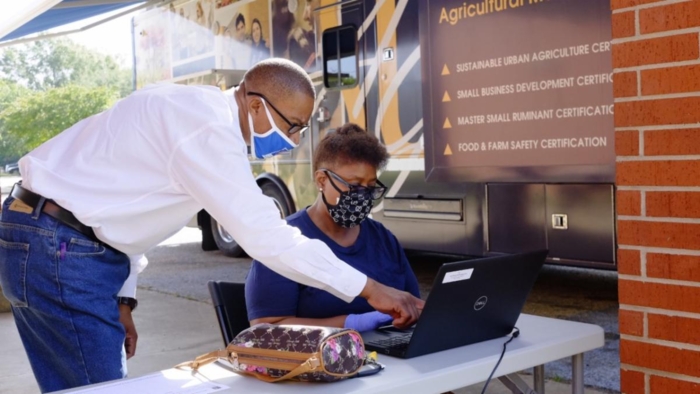
The COVID-19 pandemic drastically impacted the traditional delivery of Extension programming for the Southern University Ag Center.
Several specialists will share the lessons they have learned from the use of technology and social media platforms in the delivery of Extension programming during the new normal.
"I have found using technology and virtual platforms expands our reach for programming and allows us to engage diverse audiences,” said Krystle Allen, Extension associate for the SU Ag Center. “For example, people from across the nation joined us for a Procurement Conference and asked us to continue a hybrid format so they can participate in future conferences that will be face to face. While our target audience is Louisiana citizens, it is awesome for Southern University's Cooperative Extension Program to have a national impact,” expressed Allen.
This sentiment was also expressed by William Augustine, coordinator of the SU Ag Center’s Cooperative Extension’s Enhancing Capacity of Louisiana’s Small Farms and Businesses Certification Programs.
“We have connected with over 400 clients and trained them on a virtual platform since the pandemic started,” said Augustine. “The Certification Programs have gained momentum and enrollment has increased due to the virtual training,” he added.
These are some lessons that the SU Ag Center’s Cooperative Extension Program has learned through the use of technology in the wake of COVID-19 while continuing to link its citizens to opportunities for success.
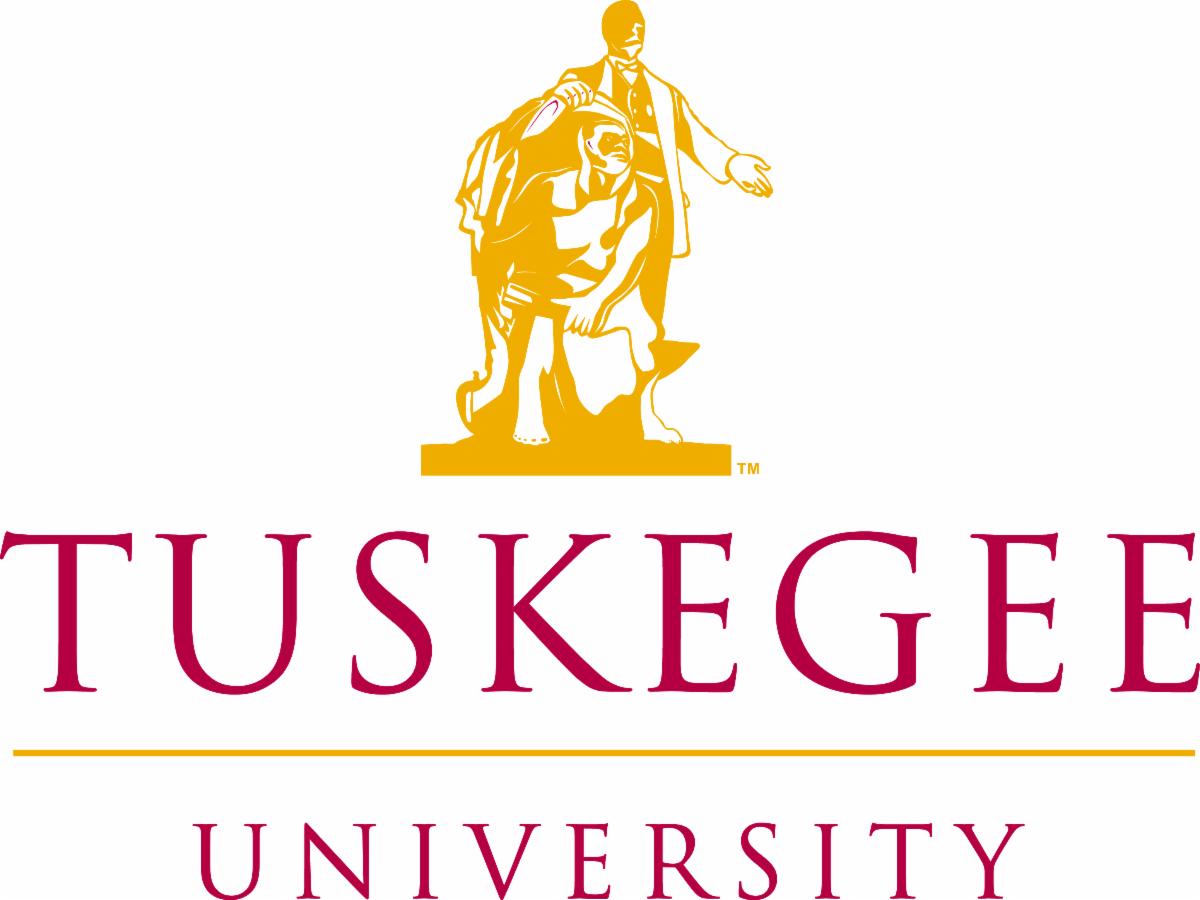
Raising the bar for Extension programming

By Jacquelyn Carlisle
Tuskegee University Cooperative Extension (TUCE), just like so many others affected by the COVID-19 pandemic, realized the importance to continue to provide their clientele with valuable information and opportunities that was still available to them even in the midst of this unusual challenge.
Therefore, TUCE rose to the challenge of still providing invaluable information and COVID-19 relief information to their clientele through virtual platforms. Examples of the work accomplished during these trying times were in the food systems/food safety and small businesses.
TUCE launched the first virtual conference/symposium at Tuskegee University through EarthWeek2020, which was a series of five symposia dealing with the complete value chain of hemp/cannabis and had more than 109 participants from all over the country. The virtual platform continued for another six sessions as the #Earth2TU program (to keep the symposia going throughout the year) added another 134 participants.
The #Earth2TU program topics included the Alabama Hemp Industry, the history of Lowndes County and production agriculture and its connection to civil rights history, African American Churches and Food Security, African Americans in the Cannabis Industry, and Land Access. Fact sheets, bulletins and digital media were additional communication outputs from the program.
Two longest serving conferences (annual Farmers Conference at 129 years and Professional Agricultural Workers Conference at 78 years) switched to a digital platform as well. Both of these platforms surpassed traditional expectations as far as attendees, further raising the bar for Extension programming beyond state lines.
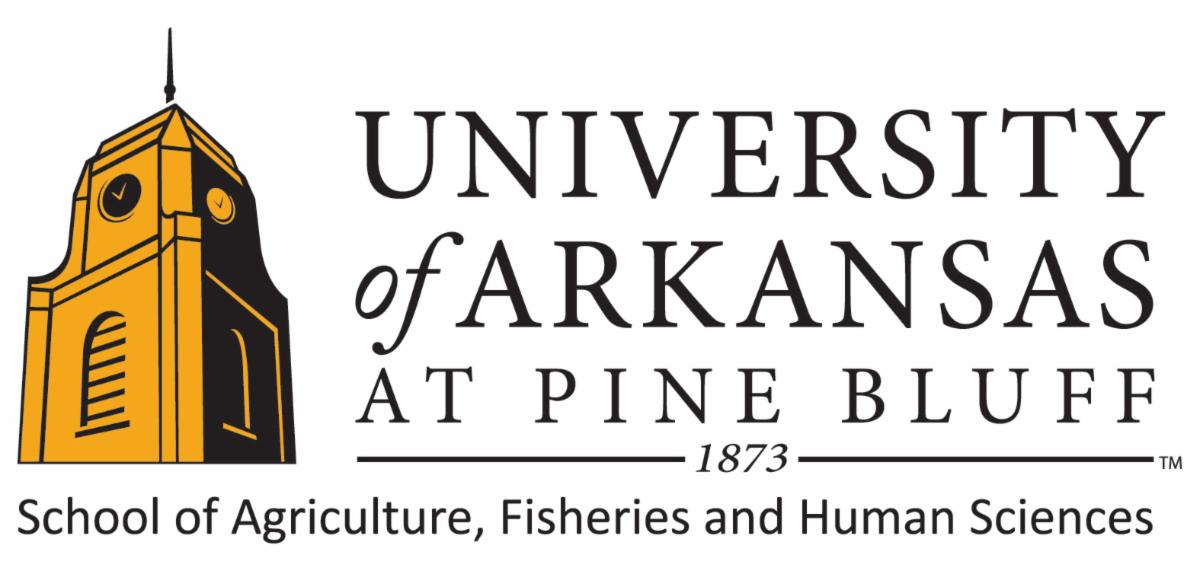
During outbreak, UAPB Extension personnel reach clientele through new means
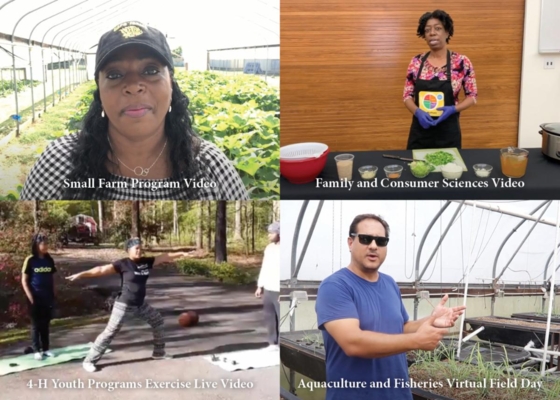
Despite office closures and social distancing measures, University of Arkansas at Pine Bluff (UAPB) program leaders found new ways to support clientele during the pandemic. The UAPB Small Farm Program conducted an ambitious series of educational webinars for small-scale and underserved producers, allowing them to obtain the knowledge and tools to stay profitable. Program personnel connected with producers through Zoom meetings and phone calls to help them apply for several disaster relief programs to offset losses caused by the pandemic.
In place of traditional on-site demonstrations, the UAPB Family and Consumer Sciences department provided nutrition education through instructional videos, regular phone meetings, online video conferencing and direct mail to vulnerable populations at organizations such as schools, Head Start programs, food pantries, women’s shelters, senior living sites and substance abuse recovery sites.
UAPB 4-H Youth Programs provided a wealth of entertaining educational activities to children and their parents stuck at home. Lessons with recipes and demonstrations of physical activity were shared online.
In lieu of a traditional field day, the UAPB Department of Aquaculture and Fisheries hosted a virtual equivalent. The event enabled university researchers to connect with producers and other constituents and gave updates on timely research projects.

UMES Extension expands its reach amidst the pandemic
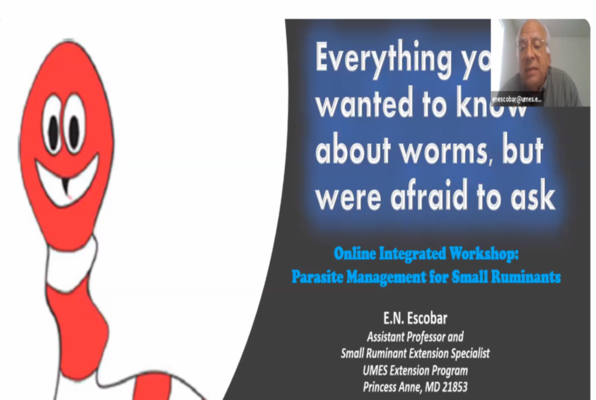
On Friday, March 13, 2020, administrators, educators and staff alike wondered if the University of Maryland Eastern Shore (UMES) Extension would survive the pandemic as they gathered laptops and office supplies in preparation of working from their various homes.
Along with the rest of the nation, they were caught off guard! But then, true Extension educators can only be stumped for so long.
Dr. E. Nelson Escobar, associate dean and associate administrator for UMES Extension, spurred his team amidst the uncertainties, encouraging each program leader to meet their clients in cyberspace. He led the way, offering the unit’s first-ever webinar on April 30.
Since that time, the Small Farm and 4-H teams have offered more than 10 well-attended and informative webinars. The Health and Nutrition team developed 42 10-minute videos to virtually teach the youth during the summer months. After a considerable amount of planning, the Small Farm team held its annual conference in November as a hybrid event. More than 100 participants attended the virtual sessions with some from as far away as Nigeria.
Today, as a tinge of normalcy sits in the air, it is apparent that UMES Extension’s virtual world must always remain even as it moves toward meeting face to face.

Technology: 'Powerful tool' for Extension programming during pandemic
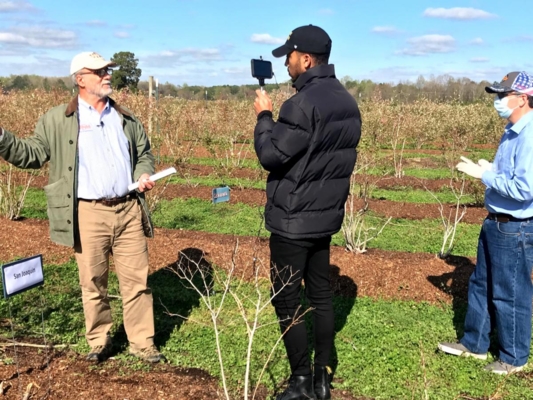
Dr. Reza Rafie, horticulture Cooperative Extension specialist at Virginia State University (VSU), first realized in 2012 the potential technology held for delivering Extension programming when he and a videographer created a 12-minute video on growing ginger. It’s been viewed more than 86,000 times since.
In March 2020, as he was preparing for his annual Blueberry Walk, the COVID-19 pandemic was shutting down the world with social distancing restrictions and threatened to halt Virginia Cooperative Extension outreach programs like Rafie’s. But remembering the success he had eight years earlier with video, Rafie decided if the participants couldn’t come to the program, he’d take the program to them – virtually, at least.
He elicited the help of the VSU College of Agriculture’s (COA) Marketing and Communications Department, and he, along with videographer Joshua Maclin and marketing assistant Mark Klingman, went into the berry fields at VSU’s Randolph Farm and began videotaping the walk. With the help of Erica Shambley, COA digital content manager and assistant director of the marketing and communications department, the program was delivered on Facebook Live and was the first Virginia Cooperative Extension program to use social media to deliver information to the public during the pandemic.
More than 900 participants attended the live virtual program, more than 20 times the participants who normally attended the program in person. It created a lot of buzz and set a precedent and a foundation for the virtual programming to follow throughout the coming year and will likely change, in part, the way VCE delivers educational programs in the future.
Virginia Cooperative Extension extends the resources of Virginia's two land-grant universities, Virginia State University and Virginia Tech, to solve problems facing Virginians every day.

West Virginia State University youth STEM camps adjust to pandemic realities
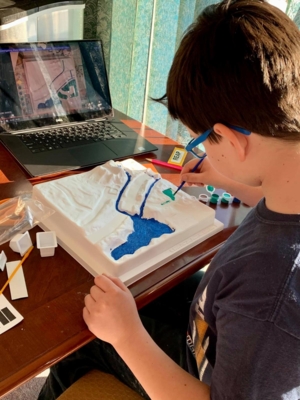
Last year, West Virginia State University (WVSU) shifted face-to-face youth science outreach efforts to the virtual arena in the wake of the ongoing COVID-19 pandemic, rolling out multiple virtual STEM programs that targeted middle and high school students from rural and underserved regions of the state. It’s a programmatic shift that is proving successful.
Since the pandemic began in March 2020, WVSU’s youth STEM programs have reached middle and high school students in 13 counties with immersive virtual experiences. Participants have reported a 40 percent increase in STEM knowledge and content, a 74 percent increase in STEM engagement outside of the class, and an 82 percent increase in their interest in pursuing STEM careers.
“The virtual format has gone really well so far,” said Hannah Payne, director of WVSU’s Center for the Advancement of STEM and assistant program director for 4-H. “Our virtual programs launch with an orientation, have an interactive classroom space where they can watch their videos for the lessons and complete their challenges, and then live office hours where they can talk to the professors.”
With COVID-19 rates decreasing, and the state’s vaccination rate rising, WVSU officials are cautiously optimistic of eventually resuming in-person outreach education. In the meantime, WVSU 4-H will offer several virtual STEM camps throughout the summer.
